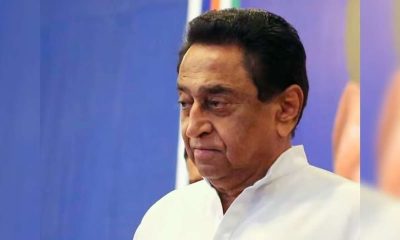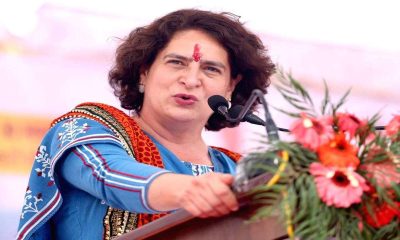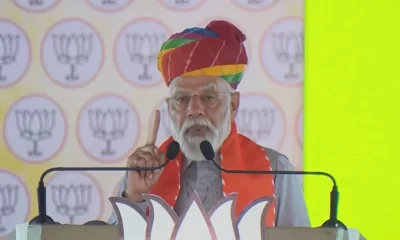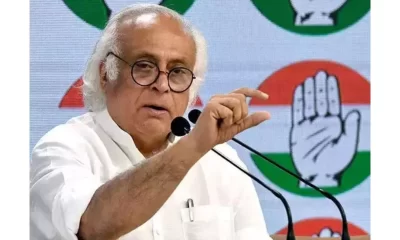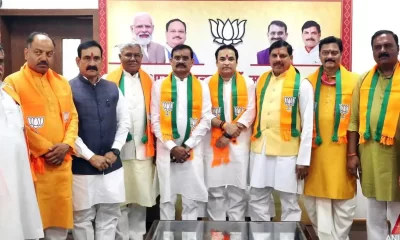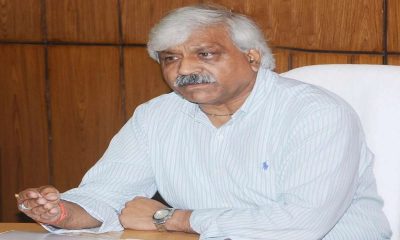India News
Congress Foundation Day 2021: History and significance
The Indian National Congress played an essential role in the Indian independence struggle. It is one of the oldest ruling parties of India.

The Indian National Congress was founded on December 28, 1885, at Gokuldas Tejpal Sanskrit College in Bombay. Ever since, today is marked at Congress Foundation Day. The official twitter handle of the Indian National Congress tweeted in honour of 136 years of the party.
Who founded the Indian National Congress?
The founder of the Indian National Congress (INC) was actually not an Indian. Allan Octavian Hume, a retired British Indian Civil Services officer, founded the party with an aim to provide educated Indians with a platform for civil and political discussions. With 72 delegates present, the Indian National Congress was founded. Hume was the General Secretary and the president was Womesh Chunder Bonnerjee. Names like Dadabhai Naoroji, MG Ranade, Monomohun Ghose, Sundernath Banarjee and Dinshaw Wacha were also founders of the Indian National Congress. There were other two British members as well.
What was its significance back then?
Indian National Congress was the only body that represented the Indians. After 1885, the Indian National Congress passed a significant number of resolutions that fulfilled humble demands of the Indians like civil rights and policies.
Indian National Congress and its prominent leaders
The Indian National Congress was popular among people. Its leaders had a massive following. Mahatma Gandhi was a prominent name during the Indian freedom struggle. He was also the president of INC’s Belgaum session in 1924.
After earning political power and control over various provinces, Jawaharlal Nehru came up as the leader that the people wanted. He became the Prime Minister of India after independence, and continued for 17 years.
After Nehru, his daughter succeeded him. Indira Gandhi became the first female Prime Minister of India. She held the office for 15 years. After her assassination in 1984, her son Rajiv Gandhi continued the legacy. He became the youngest Prime Minister in 1984 and he held the office till 1989. The party has given six Prime Ministers to the country: Jawaharlal Nehru, Lal Bahadur Shastri, Indira Gandhi, Rajiv Gandhi, P V Narsimha Rao and Manmohan Singh.
What is INC’s symbol?
Initially, the Election Symbol was an image of two bullocks with a plough. It changed to a cow with a sucking calf during 1971-1977 period. Then, the symbol changed to right hand facing front. It hasn’t been changed since.
What happened after Rajiv Gandhi’s assassination?
After Rajiv Gandhi’s assassination, his widow, Sonia Gandhi took the office of Congress president. Following that, the INC made alliance with various regional parties and led to the formation of Congress-led UPA government. Dr. Manmohan Singh was the Prime Minister.
Read Also: PM Modi to inaugurate Kanpur Metro stretch, pipeline project and attend IIT convocation
Who are the current leaders of the Indian National Congress?
Currently, the party is led by Rahul Gandhi while Sonia Gandhi is the president. Since the Bhartiya Janata Party (BJP) has come into power, influence of the Gandhi family has been reducing.
The Indian National Congress played an essential role in the Indian independence struggle. It is one of the oldest ruling parties of India.
2024 Lok Sabha Elections
NCP (SP) leader Sharad Pawar says Prime Minister Narendra Modi is trying to create fear like Russian President Vladimir Putin
Sharad Pawar said that former prime ministers worked to make a new India but PM Modi only criticises others and does not speak about what his government has done for the people of India in the last 10 years.
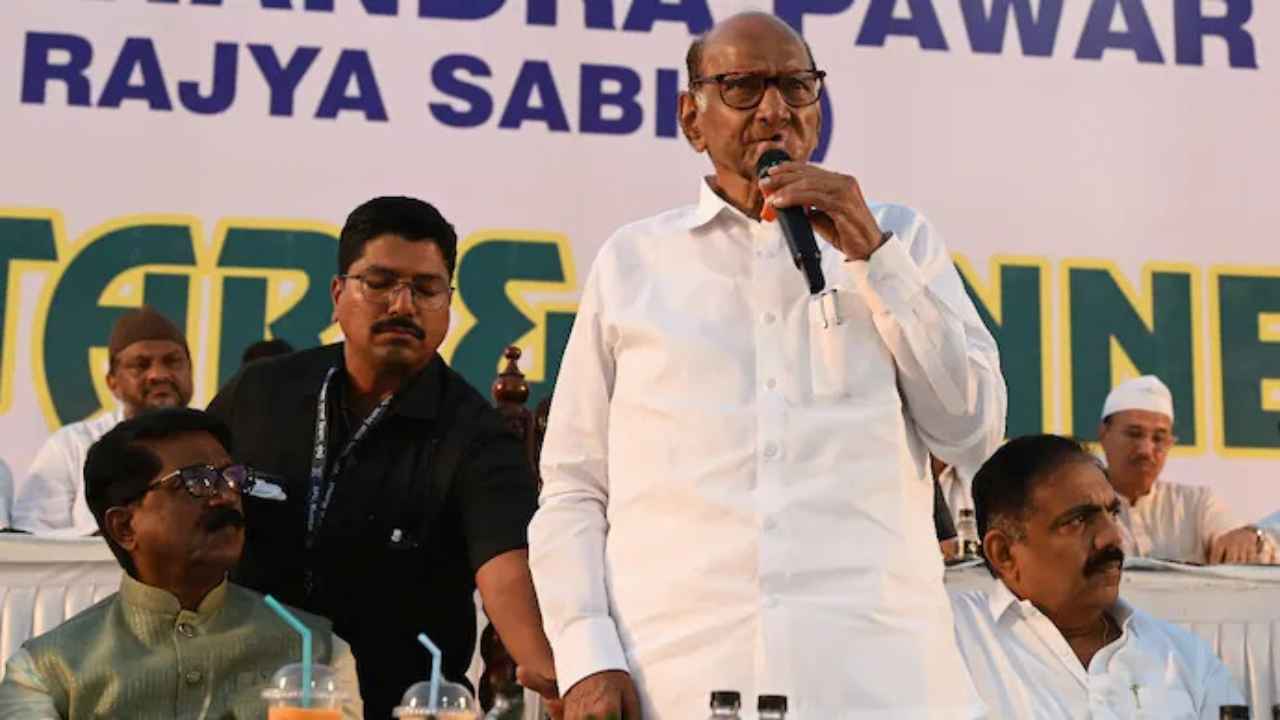
NCP (SP) leader Sharad Pawar on Monday attacked Prime Minister Narendra Modi and said that he fears a new Putin is in the making in India. Pawar alleged PM Modi is trying to create fear and emulating Russian President Vladimir Putin. Sharad Pawar said that former prime ministers worked to make a new India but PM Modi only criticises others and does not speak about what his government has done for the people of India in the last 10 years.
Sharad Pawar was addressing a campaign rally in Amravati for a Maha Vikas Aghadi candidate and said former Prime Minister Jawaharlal Nehru’s contribution to the nation cannot be questioned. He said some BJP leaders had spoken publicly about changing the Constitution and appealed to the people to stop allowing autocracy from taking shape in India.
Pawar said he had seen Prime Minister Pandit Jawaharlal Nehru, and had seen the work of almost all Prime Ministers ranging from Indira Gandhi, Rajiv Gandhi, and Narasimha Rao to Manmohan Singh. The NCP (SP) chief said he had seen that their efforts were to make a new India, but PM Modi knows only how to criticize. He said nobody in history can forget the contribution of former Prime Minister Jawaharlal Nehru, but the PM Modi continuously criticises him.
Sharad Pawar further added that he wanted to apologise to the people of Amravati for the mistake he had committed in the 2019 Lok Sabha elections by supporting Navneet Rana. He hailed Shiv Sena (UBT) led by Uddhav Thackeray for taking up the responsibility to protect the national interest by working closely with the Congress and the NCP (SP) as they did in the past. Speaking to the media, Pawar said that Prime Minister Narendra Modi’s constant attack on the Congress was not a wise decision as that party is not in power.
India News
Salman Khan house firing case: Mumbai crime branch recovers gun, cartridges from Tapi River in Surat
One gun and some cartridges have been recovered from the Tapi river in Surat by the Mumbai Crime Branch in the firing case outside Salman Khan’s residence, as per reports.
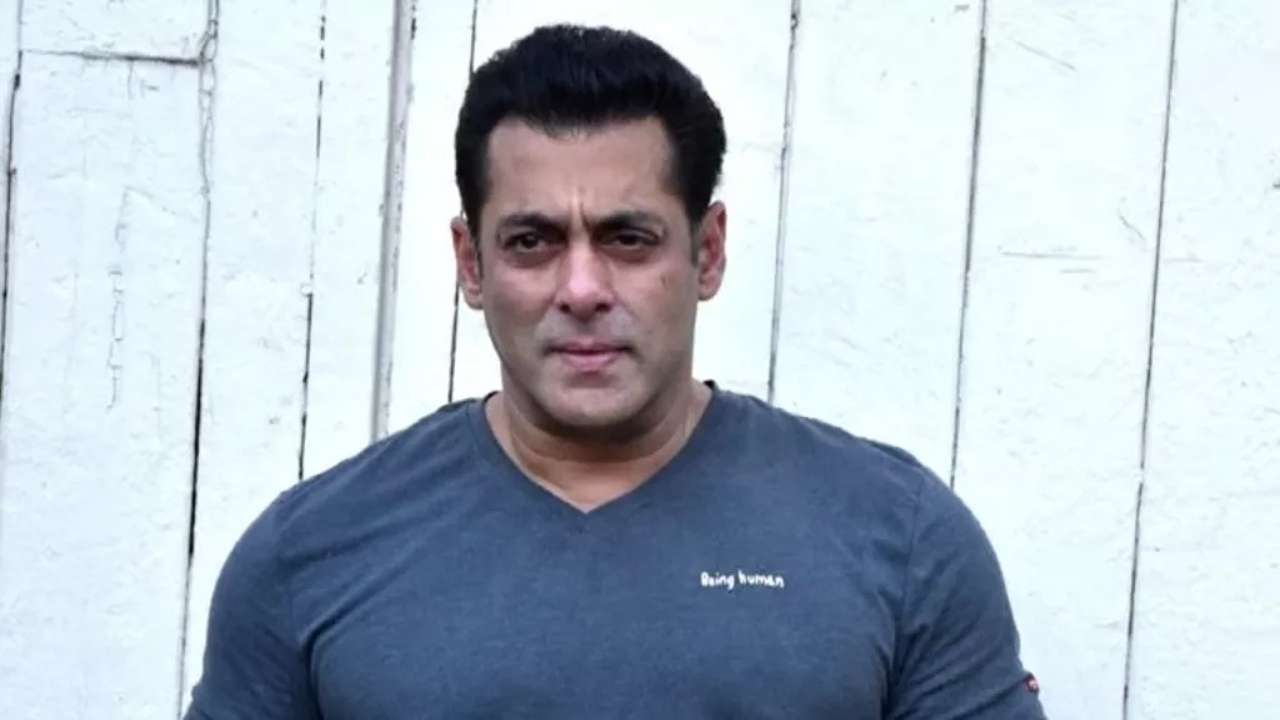
The Mumbai Crime Branch on Monday, April 22, found a gun and some live cartridges, which was used for firing outside Salman Khan’s house, from Tapi River in Gujarat’s Surat.
This is a fresh update related the gunfire incident outside Salman Khan’s apartment at the Galaxy Apartment in Bandra on April 14. According to the crime branch, they are currently looking for another gun.
It is interesting to note that the accused, after performing the crime, dropped the gun into the Tapi River in Surat.
As to the Mumbai Crime Branch, the shooters who opened fire outside Salman Khan’s residence have two guns and were instructed to shoot 10 rounds of fire.
Outside the actor’s apartment at the Galaxy Apartments in the early hours of April 14, two people arrived on a motorcycle and fired four rounds.The attackers left the location shortly after the event. Both individuals were wearing headgear and carrying backpacks, according to surveillance footage.
The Mumbai Crime Branch has taken the accused Vicky Gupta with them to the Surat Tapi river, where they had thrown the gun. The police can add more sections to this case. More than ten people’s statements have been recorded in the Salman Khan case, and the recording process is still ongoing.
The Mumbai Crime Branch announced on April 20 that three more sections have been added to the FIR against the offenders in an effort to step up the investigation into the shooting incident at Bollywood actor Salman Khan’s home.
The case has been appended with the extra sections under IPC 506(2) (threatening), 115 (abetment), and 201 (tampering with evidence). Gangster Lawrence Bishnoi and his brother Anmol Bishnoi have been named as wanted suspects in connection with the crime, according to Mumbai Crime Branch police.
Shortly after the shooting, Anmol Bishnoi, the younger brother of criminal Lawrence Bishnoi, who is currently incarcerated, allegedly claimed responsibility for the incident on Facebook.
Notably, Salman’s security level has been increased to Y-Plus since November 2022 because to threats from gangsters Lawrence Bishnoi and Goldy Brar. The actor also obtained a new armored vehicles for increased protection and was given permission to carry a handgun on his person.
India News
Arvind Kejriwal given insulin in Tihar jail after sugar levels touch 320
Finally, the BJP and its jail administration came to their senses and gave insulin to CM Arvind Kejriwal in jail, AAP tweeted.
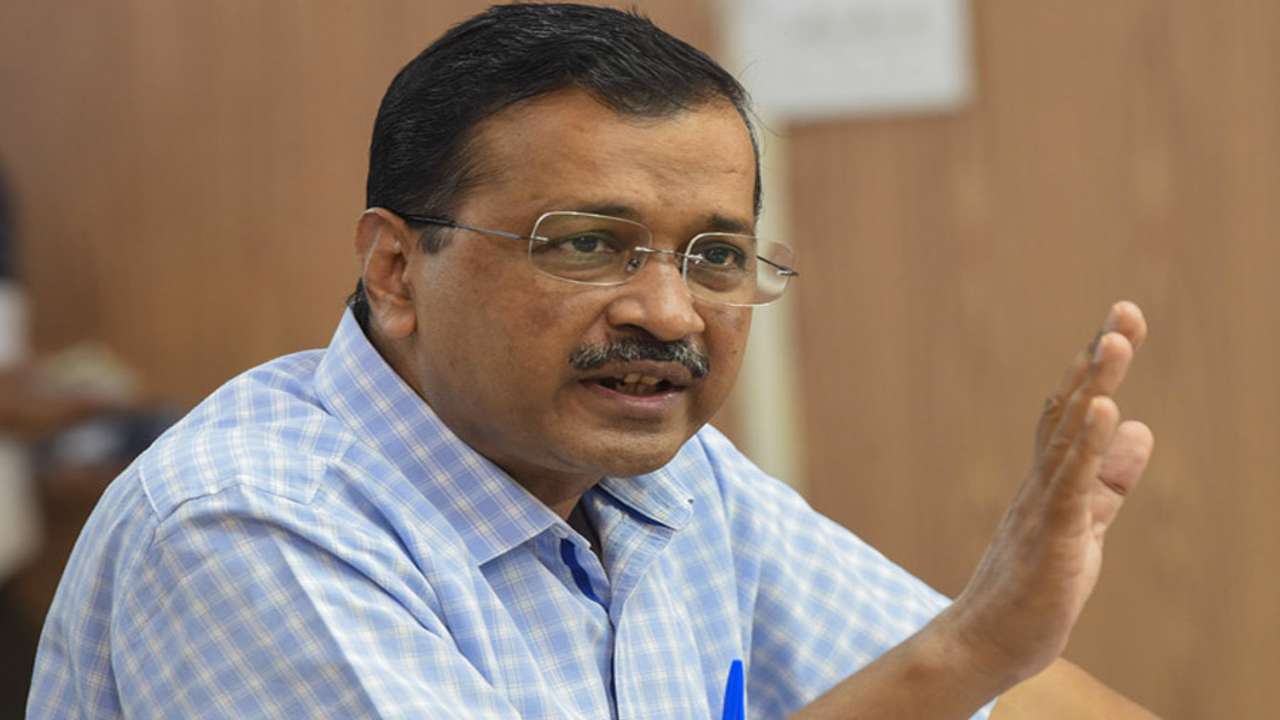
Delhi Chief Minister Arvind Kejriwal received insulin on Tuesday, April 23, after days of battling, according to the Aam Aadmi Party.
Arvind Kejriwal, however, received a low dose of insulin, according to Tihar jail officials, following a rise in his blood sugar. Around 7:00 p.m., his blood sugar level was found to be 217, and the medical staff at Tihar who were attending to him then made the decision to give him insulin, according to an official.
Taking to social media X, formerly Twitter, AAP tweeted, CM Arvind Kejriwal received insulin in jail after the BJP and its jail administration finally had a change of heart. CM Kejriwal’s blood sugar level was 320. Only the graces of Lord Hanuman and the perseverance of the Delhi community have made this possible. The AAP announced in a tweet on X that they have succeeded in delivering insulin to our Chief Minister.
According to the Tihar official, Kejriwal was given two units of low dose insulin on Monday evening on the advice of AIIMS doctors.
Low-dose insulin was given to Delhi Chief Minister Arvind Kejriwal at Tihar Jail yesterday. Yesterday, his sugar levels were 217. When the level surpasses 200, the AIIMS experts had stated that he could receive low-dose insulin, according to a Tihar Jail official.
He said Tihar’s doctors had been informed by AIIMS specialists in a video conference with the chief minister on April 20 that insulin could be given to him if his blood sugar level exceeded a specific threshold.
The incident took place just one day after a Delhi court ordered the AIIMS to set up a medical board to evaluate Arvind Kejriwal in order to determine whether or not he requires insulin to regulate his blood sugar levels. The court further said that the food prepared at home by the AAP national convenor differs from the diet plan prescribed by his doctor.
The order was issued by special judge Kaveri Baweja for CBI and ED cases, who turned down Arvind Kejriwal’s request for a video consultation with his doctor in front of his wife Sunita Kejriwal.
Delhi health minister Saurabh Bharadwaj said on Monday that Arvind Kejriwal has been detained in Tihar for almost 22 days. He has been complaining for several days that his blood sugar is rising and that the jail does not have a diabetes specialist. He has been requesting insulin. It is evident from the court’s ruling today that Tihar jail does not have a diabetes specialist.
Since insulin is the only option available to control his blood sugar levels, Arvind Kejriwal has been requesting it nonstop for the past ten days, according to AAP leader Atishi.
The Enforcement Directorate (ED) arrested Arvind Kejriwal on March 21 in relation to a money-laundering investigation involving the Delhi government’s now-scrapped excise policy. The CM has been logged in Tihar jail since April 1.
-

 Entertainment21 hours ago
Entertainment21 hours agoRanveer Singh files FIR in viral Deepfake video case
-
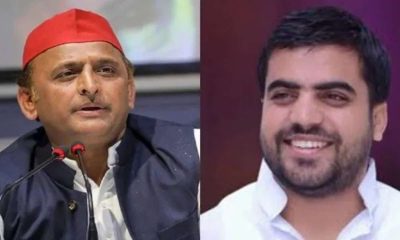
 2024 Lok Sabha Elections18 hours ago
2024 Lok Sabha Elections18 hours agoSamajwadi Party fields Lalu Yadav’s son-in-law Tej Pratap from Kannauj
-
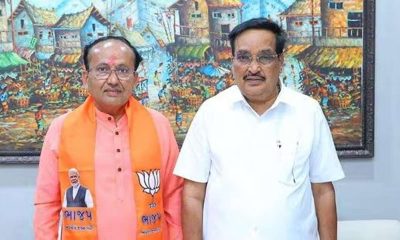
 India News20 hours ago
India News20 hours agoLok Sabha elections: BJP candidate Mukesh Dalal wins from Surat after opponents remain out of fray
-
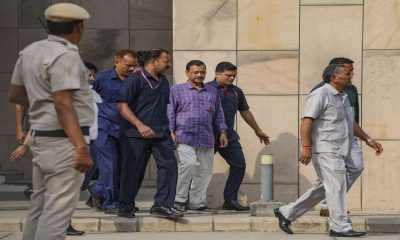
 India News21 hours ago
India News21 hours agoArvind Kejriwal writes letter to Tihar Jail officials, asks for insulin daily
-
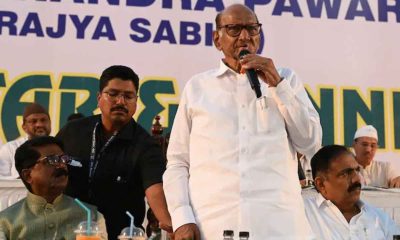
 2024 Lok Sabha Elections33 mins ago
2024 Lok Sabha Elections33 mins agoNCP (SP) leader Sharad Pawar says Prime Minister Narendra Modi is trying to create fear like Russian President Vladimir Putin
-
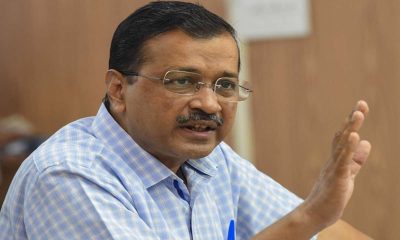
 India News2 hours ago
India News2 hours agoArvind Kejriwal given insulin in Tihar jail after sugar levels touch 320
-
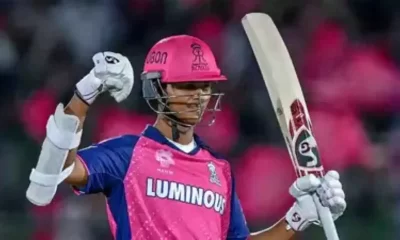
 Cricket news2 hours ago
Cricket news2 hours agoIPL 2024: Yashasvi Jaiswal hits brilliant century to help Rajasthan Royals beat Mumbai Indians by 9 wickets
-
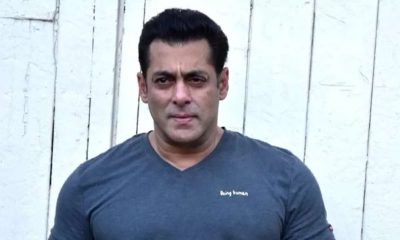
 India News59 mins ago
India News59 mins agoSalman Khan house firing case: Mumbai crime branch recovers gun, cartridges from Tapi River in Surat

